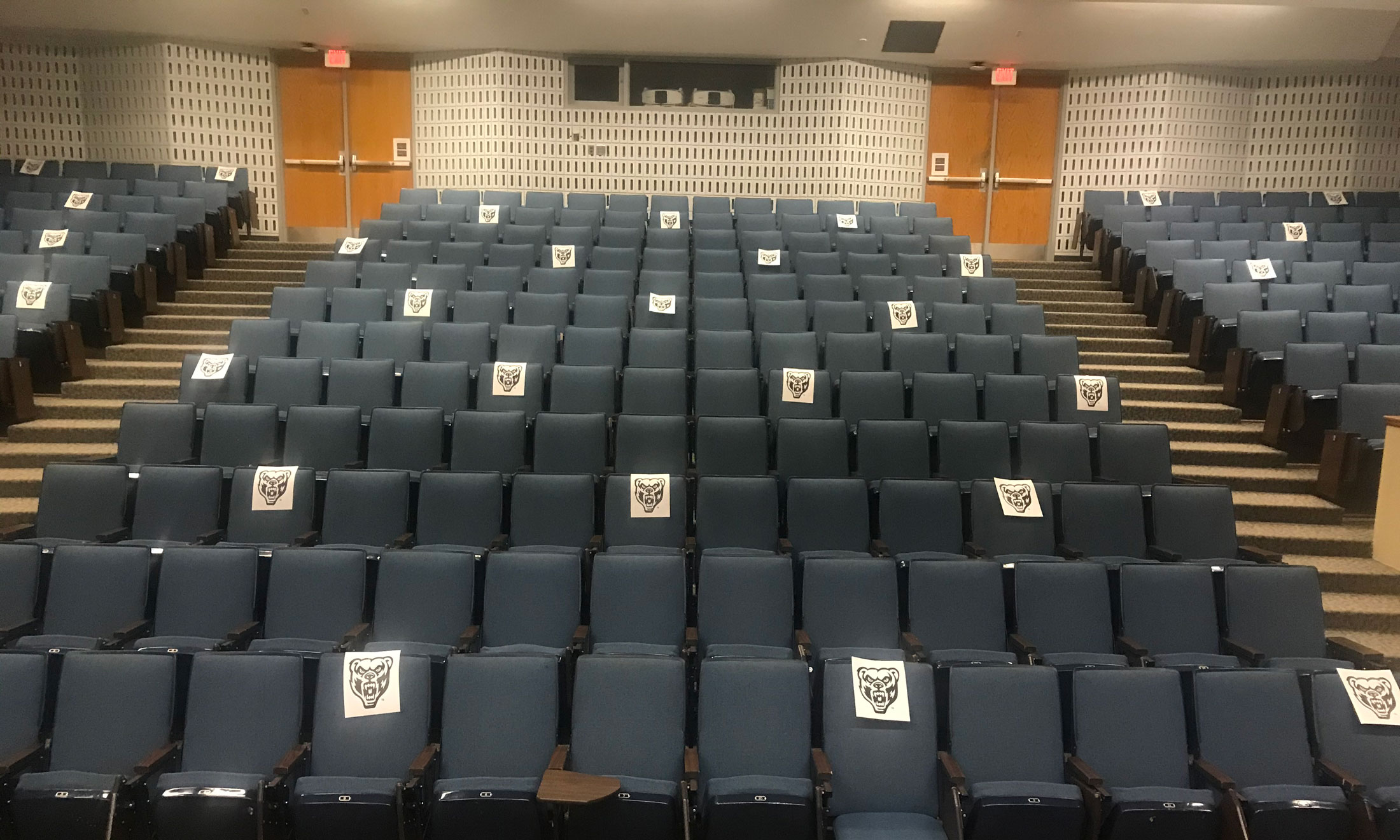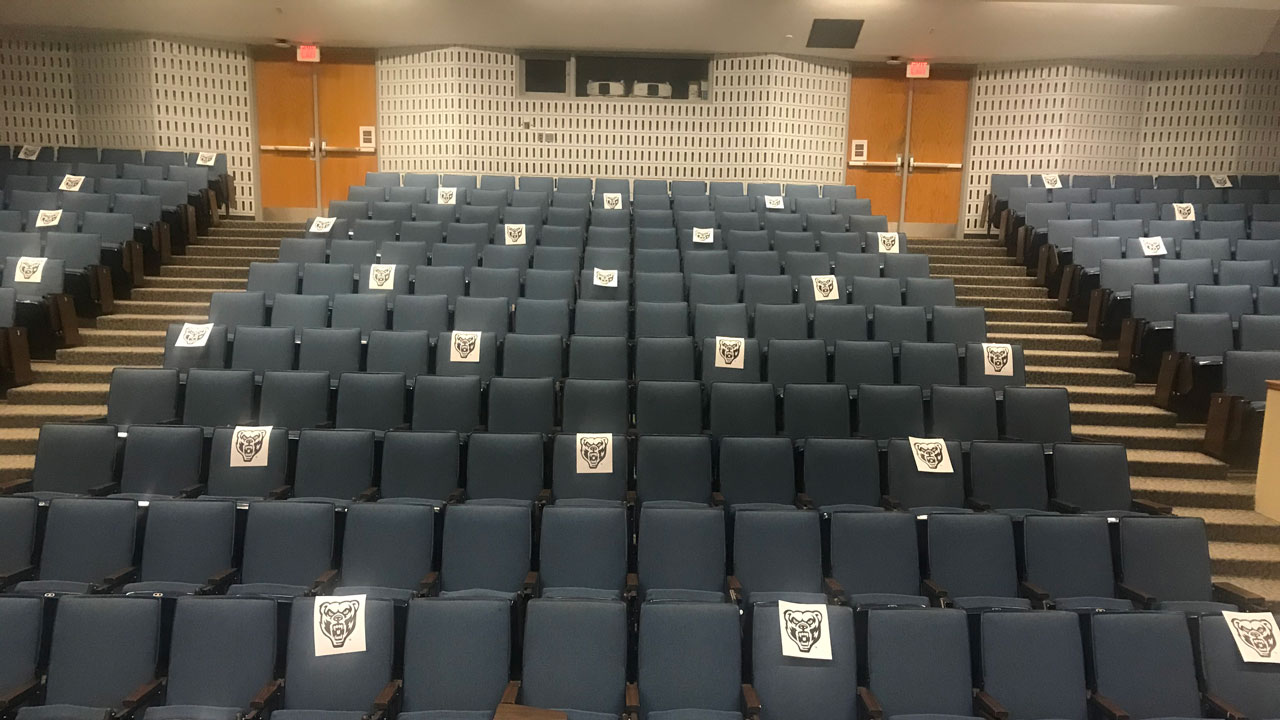- YouTube
- TikTok
OU to offer flexible learning options for Fall 2020 semester
Virtual instruction and socially-distanced classrooms are among the measures being taken to keep the OU community safe amid the ongoing coronavirus pandemic.

Dodge Hall Room 201 is among the classrooms set up for social distancing.

As the coronavirus pandemic continues, Oakland University faculty and staff are working to ensure that students have access to the classes and services they need, in an environment that protects health and safety. For the Fall 2020 semester, Oakland will offer a range of learning options, including in-person, online and hybrid classes.
For in-person learning, social distancing will be promoted by limiting classroom capacities, blocking off seats and taping off floors to ensure a minimum six-foot buffer between individuals. Classrooms will have webcams that will allow faculty to livestream lectures to students online. Depending on the course, faculty may provide instruction through livestreamed, pre-recorded and face-to-face lectures.
Hybrid courses allow faculty flexibility to leverage the benefits of in-person and online instruction in one course, said Michelle Piskulich, executive vice president for Academic Affairs and Provost.
“Hybrid typically means that the class holds some meetings in person and some meetings online,” Piskulich explained. “The in-person meetings can range from just a few class periods to once every week.”
She added that the online portion of the course may also vary, with students viewing a livestreamed lecture or engaging in real-time activities and discussions. They may also watch a pre-recorded lecture and complete group or individual assignments within a specified timeframe or any time during the week. The structure of each class will be determined by the professor.
According to Piskulich, about 12 percent of Fall 2020 courses will be hybrid, 22 percent will be online with a livestreamed lecture, and another 20 percent will be online but flexible as to when students engage. About 44 percent of courses will be in person.
Since the pandemic started, the university has continued to enhance its capacity for virtual instruction and facilitated faculty trainings in online teaching and curriculum development.
“By the end of the summer, we will have trained an additional 250 faculty in Quality Online Teaching, which consists of a four-week certification course,” Piskulich said.
To maintain a safe and healthy environment, extra sanitation measures are also being implemented, including the use of an antimicrobial solution designed to prevent the virus from adhering to surfaces. In addition, each member of the campus community will be given a washable, reusable face mask as face coverings will be required for everyone on campus. Individuals are also required to complete an online health assessment each day they are on campus.
Kresge Library and all student-facing offices, including Academic Advising and Student Financial Services, will be open throughout the semester. Virtual appointments will also be available.
“We want to be nimble, flexible and compassionate,” said Piskulich. “We cannot control what the virus does and its effect on people, but we can control how we plan and respond.”
To learn more about OU’s ongoing efforts to maintain a safe and productive environment, visit oakland.edu/return-to-campus.


 August 6, 2020
August 6, 2020